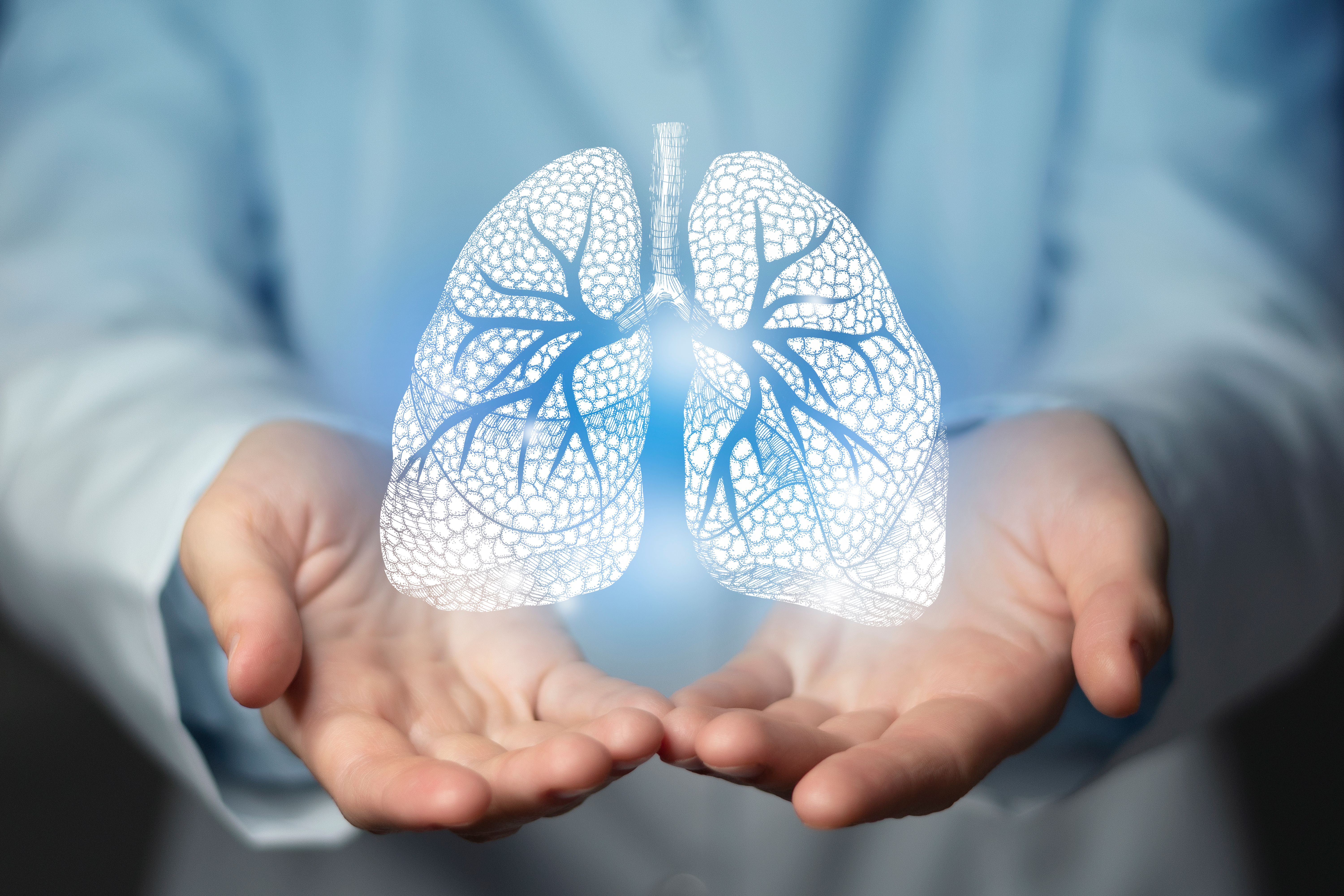
Respiratory Health
How can Community Health Workers effectively support individuals with respiratory conditions as air quality worsens and extreme weather events become more frequent?
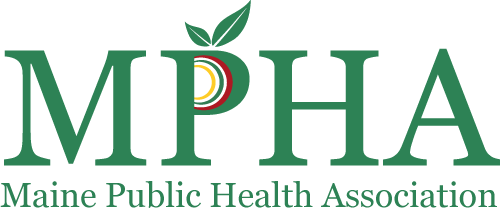
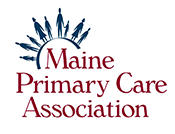
Course Information
- Audience: All public health professionals, including community health workers, working in nonprofits, healthcare, educational institutions, government and private sector
- Format: Self-Paced
- Price: Free
- Length: 1 hour
- Credential(s) eligible for contact hours: N/A
- Competencies: Health Equity Skills, Public Health Science Skills, Leadership and Thinking Systems Skills
- Learning Level: Awareness
- Companion Trainings: None
- Supplemental materials:Presentation Slides
- Pre-requisites: None
About this course
Discover how worsening air quality impacts respiratory health and learn actionable strategies to support individuals in managing respiratory conditions. This interactive session will provide Community Health Workers with essential tools to reduce exposure to air pollutants and deliver effective care in challenging environments.
What you'll learn
After completing the training, you will be able to...
- Describe key strategies for community health workers to support individuals with respiratory conditions in areas impacted by worsening air quality and extreme weather.
- Identify practical skills and tools community health workers can use to address respiratory health emergencies, including effective communication techniques and protective measures.
- Discuss methods for collaborating with local healthcare providers and environmental agencies to deliver coordinated care during air quality crises.
- Develop individualized respiratory health management plans that consider individuals' unique needs and circumstances in rural and underserved communities.
Subject Matter Expert
 Maddie Blair, MPH
Maddie Blair, MPH
Manager | Nationwide Health Promotions,
American Lung Association
Enrollment and Contact Hours
Select the Enroll Me button below to register for this course. If you have any trouble accessing the recording, contact
support@nephtc.org.
Acknowledgement: This project is supported by the Health Resources and Services Administration (HRSA) of the U.S. Department of Health and Human Services (HHS) as part of award 2 UB6HP31685‐05‐00 “Public Health Training Centers.” The contents are those of the author(s) and do not necessarily represent the official views of, nor an endorsement, by HRSA, HHS or the U.S. Government.

Vector-Borne Disease Prevention and Management
As a community health worker, are you prepared to provide your patients with essential resources and knowledge to combat vector-borne diseases? 

Course Information
- Audience: All public health professionals, including community health workers, working in nonprofits, healthcare, educational institutions, government and private sector
- Format: Self-Paced
- Price: Free
- Length: 1 hour
- Credential(s) eligible for contact hours: N/A
- Competencies: Health Equity Skills, Public Health Science Skills, Leadership and Thinking Systems Skills
- Learning Level: Awareness
- Companion Trainings: None
- Supplemental materials:Presentation Slides
- Pre-requisites: None
About this course
This session will address the growing challenge of disease-carrying vectors and their impact on Maine communities. You'll gain practical strategies to prevent and control vector-borne diseases, equipping you with the knowledge and resources to support the communities your health center serves.
This course is provided in partnership with Maine Public Health Association and Maine Primary Care Association
What you'll learn
After completing the training, you will be able to...
- Understand the Epidemiology of Vector-Borne Diseases: Participants will be able to describe the types and characteristics of vectors responsible for disease transmission in Maine, including their habitats, life cycles, and the diseases they carry.
- Identify Prevention Strategies: Attendees will learn and evaluate various strategies for preventing vector-borne diseases, such as personal protective measures, environmental management, and community-level interventions.
- Implement Effective Control Measures: Health professionals will gain practical knowledge on how to implement and promote effective vector control measures, including the use of insecticides, habitat modification, and public education campaigns.
- Utilize Resources and Support Systems: Participants will be equipped with information on available resources and support systems.
Subject Matter Expert

Megan Porter
Megan Porter is a veterinarian and an Infectious Disease Health Educator at Maine CDC. She received her DVM from Michigan State University in 2017. Prior to moving to Maine, she studied the biology and ecology of deer ticks in Michigan, working with veterinarians to collect ticks from companion dogs to map the invasion of deer ticks in the state. Megan’s current work as a Health Educator involves translating current science and public health recommendations for infectious diseases into messages that are relevant and easy to apply to Mainer’s everyday lives.
Enrollment and Contact Hours
Select the Enroll Me button below to register for this course. If you have any trouble accessing the recording, contact
support@nephtc.org.
Acknowledgement: This project is supported by the Health Resources and Services Administration (HRSA) of the U.S. Department of Health and Human Services (HHS) as part of award 2 UB6HP31685‐05‐00 “Public Health Training Centers.” The contents are those of the author(s) and do not necessarily represent the official views of, nor an endorsement, by HRSA, HHS or the U.S. Government.

Disaster Preparedness and Response for Older Adults
As a community health worker, how can you effectively support older adults in rural areas during health emergencies caused by extreme weather events?


Course Information
- Audience: All public health professionals, including community health workers, working in nonprofits, healthcare, educational institutions, government and private sector
- Format: Self-Paced
- Price: Free
- Length: 1 hour
- Credential(s) eligible for contact hours: N/A
- Competencies: Health Equity Skills, Public Health Science Skills, Leadership and Thinking Systems Skills
- Learning Level: Awareness
- Companion Trainings: None
- Supplemental materials:Presentation Slides
- Pre-requisites: None
About this course
Join us for Disaster Preparedness and Response 101, a session designed to enhance support for older adults in rural areas during extreme weather emergencies. This session will provide Community Health Workers with the skills needed to respond effectively to health emergencies, foster collaboration with emergency management agencies and healthcare providers for a coordinated response and develop personalized disaster plans tailored to individual needs.
What you'll learn
After completing the training, you will be able to...
1. Describe key strategies for Community Health Workers to effectively support older adults in rural areas during extreme weather emergencies.
2. Identify practical skills and tools community health workers can use to respond to health emergencies associated with disasters, including communication techniques and safety measures.
3. Discuss methods for collaborating with local emergency management agencies and healthcare providers to create a coordinated disaster response tailored to the needs of older adults.
4. Develop individualized disaster preparedness plans that consider the unique health needs and circumstances of older adults living in rural communities.
Subject Matter Expert
Established in
2017, the National Center for Equitable Care for Elders (NCECE) is a program of
the Harvard
School of Dental Medicine (HSDM),
located in Boston, MA. Supported by the Health Resources and Services
Administration (HRSA)
of the U.S.
Department of Health and Human Services (HHS), NCECE operates under the National Training and Technical
Assistance Partners (NTTAP)
designation. NTTAPs provide free Training and Technical Assistance (T/TA) to
support health center grantees and look-alikes.

Dr. Christine Riedy
Tiffany Kehayoglou Sarkissian
Juliette Provost
Dr. Christine Riedy is the Delta Dental of Massachusetts Associate Professor in Oral Public Health and Epidemiology at the Harvard School of Dental Medicine. She is also a psychologist and health services researcher. Dr Riedy oversees the development of the training and the technical assistance modules, the testing with the Learning Collaborative, and the plan for dissemination. Her previous research has been primarily focused on the understanding and prevention of dental caries, particularly in underserved and diverse populations. Dr. Riedy's previously funded studies (HRSA, NIH-NIDCR) focused on the intergenerational aspect of dental disease and behavioral strategies for promoting prenatal dental visits to potentially prevent the initial transmission of infection between mothers and their children. Dr. Riedy’s more recent focus has been on the integration of health care, particularly medical, dental, and behavioral integration. She sits on the Advisory Board for the Harvard School of Dental Medicine Initiative to Integrate Oral Health and Medicine. Dr. Riedy has current funding from HRSA related to the integration of oral health and general health. She is the Lead PI/PD on a HRSA-funded cooperative agreement, “Center for Evaluating Integration of Oral Health into Primary Care Training”. Dr. Riedy draws experience from her extensive work with vulnerable and underserved populations and her current work developing oral health competencies for primary caregivers.
Tiffany Kehayoglou Sarkissian joined NCECE in 2021 from the Harvard School of Dental Medicine Office of Continuing Professional Education. Prior to joining HSDM, she held a research assistant position within Harvard Chan School of Public Health's Department of Environmental Health. Tiffany serves as the Communications Coordinator for NCECE, overseeing health center outreach and engagement, and contributing to the Center's publications and learning activities. She has an extensive background in communications, higher education, writing, and physical fitness/wellness programming, and has a lifelong passion for helping disadvantaged populations. Tiffany also holds a communications role with the Harvard School of Dental Medicine Initiative to Integrate Oral Health and Medicine, to spread awareness of the integration of oral health and overall health.
Juliette Provost serves as the Staff Assistant at NCECE, providing administrative support for the Center’s activities and day-to-day operations. She joins us from Simmons University where she earned a BA in English and served as an Office Assistant to Accessibility Services and was the Senior Administrative Assistant to the CIO.
Enrollment and Contact Hours
Select the Enroll Me button below to register for this course. If you have any trouble accessing the recording, contact
support@nephtc.org.
Acknowledgement: This project is supported by the Health Resources and Services Administration (HRSA) of the U.S. Department of Health and Human Services (HHS) as part of award 2 UB6HP31685‐05‐00 “Public Health Training Centers.” The contents are those of the author(s) and do not necessarily represent the official views of, nor an endorsement, by HRSA, HHS or the U.S. Government.

Understanding the Impact of Extreme Weather and Climate Variations on Health
How can understanding the impact of extreme weather events and climate variations improve the health outcomes of the communities you serve?


Course Information
- Audience: All public health professionals, including community health workers, working in nonprofits, healthcare, educational institutions, government and private sector
- Format: Self-Paced
- Price: Free
- Length: 1 hour
- Credential(s) eligible for contact hours: N/A
- Competencies: Health Equity Skills, Public Health Science Skills, Leadership and Thinking Systems Skills
- Learning Level: Awareness
- Companion Trainings: None
- Supplemental materials:Presentation Slides
- Pre-requisites: None
About this course
This session will provide an overview of how extreme weather events and climate variations contribute to increased health issues, with a focus on identifying the vulnerable populations and communities most at risk. Community health workers and support roles will gain valuable insights and resources to help support the communities they serve.
What you'll learn
After completing the training, you will be able to...
- Understand the Health Impacts of Extreme Weather and Climate Variations: Participants will be able to describe how extreme weather events, such as heatwaves, hurricanes, and floods, contribute to various health issues.
- Identify Vulnerable Populations at Risk: Participants will learn to identify which populations and communities are most vulnerable to the health impacts of extreme weather and climate variations.
- Explore Strategies for Community Health Support: Participants will gain insights into effective strategies and resources that can be used by community health workers to support and protect vulnerable populations during extreme weather events.
- Utilize Resources and Support Systems: By the end of this webinar, you will be equipped with information on available resources.
Subject Matter Expert

Jen Boothroyd
Jen is the Manager of Environmental Sustainability at Northern Light Health, a role that builds on her career in regional planning, environmental science, and public administration in Maine. She has held this role for a year, and has been with Northern Light for nearly seven years. Jen holds a bachelor’s degree in Biology and Environmental Science from the University of Maine at Farmington, and a master’s degree in Public Administration from the University of Maine. She is a lifelong Mainer, and lives in Brewer with her two children.
Enrollment and Contact Hours
Select the Enroll Me button below to register for this course. If you have any trouble accessing the recording, contact
support@nephtc.org.
Acknowledgement: This project is supported by the Health Resources and Services Administration (HRSA) of the U.S. Department of Health and Human Services (HHS) as part of award 2 UB6HP31685‐05‐00 “Public Health Training Centers.” The contents are those of the author(s) and do not necessarily represent the official views of, nor an endorsement, by HRSA, HHS or the U.S. Government.

Migrant Community and Education
How can Community Health Workers empower migrant communities to navigate the health challenges posed by climate change and displacement?


Course Information
- Audience: All public health professionals, including community health workers, working in nonprofits, healthcare, educational institutions, government and private sector
- Format: Self-Paced
- Price: Free
- Length: 1 hour
- Credential(s) eligible for contact hours: N/A
- Competencies: Health Equity Skills, Public Health Science Skills, Leadership and Thinking Systems Skills
- Learning Level: Awareness
- Companion Trainings: None
- Supplemental materials:Presentation Slides
- Pre-requisites: None
About this course
Join us for a webinar led by Migrant Clinicians Network, designed specifically for Community Health Workers (CHWs). This session will explore how climate change affects migrant communities and the unique challenges they face. We will also discuss the crucial role community health workers play in supporting these
communities and how to prepare for and support those displaced by climate change.
What you'll learn
After completing the training, you will be able to...
- Identify climate change and its impact on migration, migrants, and health systems;
- Discuss public health strategies to reach undeserved populations;
- Discuss the role Community Health Workers can play in supporting migrant communities.
Subject Matter Expert

Alma Galván, MHC
Alma Galván, MHC (she/her/ella), is the Director of Community Engagement and Worker Training with MCN. Bicultural and bilingual, Galván has worked for more than three decades to improve the health of communities disadvantaged by structural inequities in the United States, Mexico, Puerto Rico, and Latin America. Her work has focused on a broad range of public health topics including infectious diseases, environmental health and justice, climate justice, worker health and safety, drug prevention, water and sanitation, cultural competency, and community development water and sanitation. She has worked with community-based organizations and international agencies such as the Pan American Health Organization. At Migrant Clinicians Network, she fosters innovative and participatory approaches to building capacity among immigrant and migrant communities and other underserved populations. She contributes to the development, implementation, and evaluation of multiple projects. Galván has extensive expertise in providing technical assistance and developing culturally contextual curricula and educational materials for Limited English Proficiency and low-literacy adult learners, community health workers, health professionals, health educators, and clinicians. Her unique approach to adult learning and expansive expertise in community-based approaches to health promotion helped hundreds of community health workers, clinicians and health department personnel bring culturally contextual COVID-19 resources and strategies to immigrant and migrant communities in order to promote vaccination and address mis/disinformation. Galván has worked extensively with MCN partners, community-based organizations, health agencies, and local and state health departments promoting health equity through language access and cultural competency. Galván has a strong health and social science background and has designed, implemented, and assessed programs for over 30 years. Galván is bilingual in English and Spanish. She is passionate and committed to addressing health inequities and lessening disparities. In her free time, Galván spends time with her family, and enjoys movies, reading, and learning about different cultures.
Enrollment and Contact Hours
Select the Enroll Me button below to register for this course. If you have any trouble accessing the recording, contact
support@nephtc.org.
Acknowledgement: This project is supported by the Health Resources and Services Administration (HRSA) of the U.S. Department of Health and Human Services (HHS) as part of award 2 UB6HP31685‐05‐00 “Public Health Training Centers.” The contents are those of the author(s) and do not necessarily represent the official views of, nor an endorsement, by HRSA, HHS or the U.S. Government.

Addressing Disparities in Climate Health Impacts
In what ways can Community Health Workers (CHWs) be empowered to lead initiatives that enhance climate resilience and promote health equity in their communities?


Course Information
- Audience: All public health professionals, including community health workers, working in nonprofits, healthcare, educational institutions, government and private sector
- Format: Self-Paced
- Price: Free
- Length: 1 hour
- Credential(s) eligible for contact hours: N/A
- Competencies: Health Equity Skills, Public Health Science Skills, Leadership and Thinking Systems Skills
- Learning Level: Awareness
- Companion Trainings: None
- Supplemental materials:Presentation Slides
- Pre-requisites: None
About this course
This session will delve into the disproportionate impacts of climate change on vulnerable communities and explore effective strategies for advocating equitable access to healthcare services and resources. Participants will gain a deeper understanding of how climate change exacerbates health disparities and learn actionable approaches to support and protect those most at risk.
What you'll learn
After completing the training, you will be able to...
- Understand Disproportionate Impacts: Identify how climate change disproportionately affects vulnerable communities, particularly within Justice 40 Communities in Maine, and recognize specific health disparities that are exacerbated by climate change.
- Advocate for Equitable Healthcare Access: Learn effective strategies to advocate for equitable access to healthcare services and resources for communities most at risk. Understand the role of Community Health Workers (CHWs) in supporting climate resilience and health equity.
- Develop Actionable Approaches: Learn about actionable approaches and interventions to mitigate the health impacts of climate change on vulnerable populations. Explore best practices and community-based strategies to enhance climate resiliency among undeserved communities.
- Resource Utilization: Access and utilize resources provided during the webinar to support ongoing efforts in addressing climate health disparities.
Subject Matter Expert
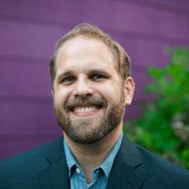
Ben Fulgencio-Turner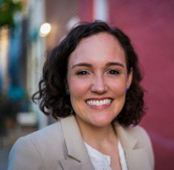
Jess Hinshaw
Ben Fulgencio-Turner leads the Climate for Health program, a national initiative to build climate leadership and action in the health sector, advancing solutions that protect personal and community health. Ben started his career as a community organizer in New Orleans, supporting neighborhood leaders and building power in communities recovering from Hurricane Katrina. He has studied and worked within systems of safety-net health care for over fourteen years, developing cross-sector partnerships to address root causes of health inequities. He received a BA from Tulane University and a MPP from Georgetown University.
Jess Hinshaw is the Director of Environmental Health in the Population Health Division at the National Association of Community Health Centers (NACHC). In her role, she works alongside community health centers engaging in environmental health work and oversees initiatives that build climate resilience, promote learning about the health impacts of climate change, and address environmental justice issues. Jess’s work has focused on community-based participatory research in public health and environmental health. Before coming to NACHC, Jess held various positions with AMOS Health and Hope in Managua, Nicaragua focused on community based primary health care. She also served as the Health Equity Evaluator at the New Mexico Department of Health in response to COVID-19. In addition to her role at NACHC, Jess leads a course on Monitoring and Evaluation for non-profits and civil society organizations at the United Nations University for Peace, in San Jose, Costa Rica. Jess received her Master of Public Health from Vanderbilt University and is also currently a doctoral candidate at the George Washington University.
Enrollment and Contact Hours
Select the Enroll Me button below to register for this course. If you have any trouble accessing the recording, contact
support@nephtc.org.
Acknowledgement: This project is supported by the Health Resources and Services Administration (HRSA) of the U.S. Department of Health and Human Services (HHS) as part of award 2 UB6HP31685‐05‐00 “Public Health Training Centers.” The contents are those of the author(s) and do not necessarily represent the official views of, nor an endorsement, by HRSA, HHS or the U.S. Government.






